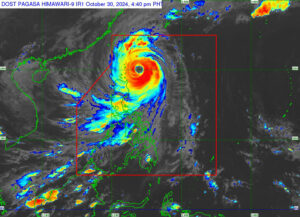During this year’s Olympic Games, Paris took a major leap forward in testing algorithmic video surveillance.
Global security service revenues are projected to grow by 4.4% annually, reaching £231 billion by 2026, according to the Freedonia Group.
When considering the allocation of these massive funds, one might instinctively think of modern warfare, with its extensive use of security contractors and sophisticated equipment in conflict zones like Yemen or Ukraine.
However, in a striking twist, the event that has recently been dubbed one of the ‘world’s largest security operations,’ is not a military conflict, but the Olympics. This global spectacle, as both authorities and critics acknowledge, demanded an unprecedented level of security coordination, rivalling that of wartime operations.
On a trial basis, 485 cameras controlled by AI software were in operation during the games.
Paris took a major leap forward in testing algorithmic video surveillance. For two weeks, images from surveillance cameras in the capital and several towns in the region were analysed by Cityvision, an advanced system designed to detect a range of activities, including abandoned items, the presence or use of weapons, smoke, and crowd behaviour, amongst other things.
The goal was for the surveillance systems to instantly identify critical events in real-time, such as a crowd moving rapidly towards a gate, or an individual abandoning a backpack on a busy street corner and promptly notify security personnel.
French authorities have indicated that following the successful trial during the Olympic Games, and previous tests at high-profile events such as Taylor Swift concerts and the Cannes Film Festival, the path is now clear for future broader implementation.
Inevitably, this has attracted widespread criticism with many arguing that the pervasive use of AI software for surveillance purposes potentially violates the European Union’s General Data Protection Regulation, particularly its safeguards for biometric data, including individuals’ physiological traits and behaviours.
Yet, these technologies, which can be directly connected to local command centres and police departments, present a vital opportunity to prevent tragedies. The 1996 Summer Olympics in Atlanta, Georgia, is a stark reminder of what is at stake, when a single homemade pipe bomb left in a backpack exploded in a crowd of spectators causing two deaths and injuring over 100 people.
There are indications that public opinion is shifting in favour of these measures. According to last year’s Fiducial/Odoxa “French Security Barometer,” 89% of respondents supported the use of smart cameras in stadiums, 81% endorsed them on public transit, and 74% approved of their deployment on public roads.
This shift in public sentiment is supported by compelling real-world examples. For instance, in 2019, New York City detectives quickly identified the mystery man who sparked terror by placing potential bombs in a subway. What would have taken hours through non-technological means, was accomplished in just 60 minutes thanks to face-scanning software.
Similarly, in October 2023, the Metropolitan Police used retrospective facial recognition to identify 149 suspects linked to retail crimes. Just weeks later, during a deployment on December 14 in South London, the technology played a key role in the arrest of 10 individuals for serious offences, including threats to kill, robbery, and possession of an offensive weapon.
For governments and technology companies, the use of AI surveillance is proving to be a mutually beneficial success. These algorithmic systems are being used more and more, offering access to a wealth of data that surpasses what human observers alone could provide and becoming a force for major good in public safety.
Dahua Technology is at the forefront of enhancing situational awareness in densely populated venues. Most recently, its technology has been pivotal in upgrading security at Tripoli Stadium in Libya, which has been refurbished to meet FIFA’s standards and now accommodates 50,000 spectators. The new systems enable security personnel and stadium staff to manage access via facial recognition, predict overcrowding and potential bottlenecks through automatic heat-mapping from camera feeds, and monitor suspicious individuals or emerging incidents with greater precision.
Comparably, Axis Communications’ Object Analytics transforms video into valuable insights with its suite of AI-based analytics. By detecting, classifying, tracking and counting objects, monitoring areas for security reasons becomes effective, allowing rapid responses to dangerous situations. For example, spectators involved in robberies and fights or with ties to drug dealing are prevented from entering Uruguay’s Centenario stadium thanks to Axis’ facial recognition system.
Ultimately, while AI surveillance technology remains a contentious issue, caught between the spectre of a Big Brother society and its potential for significant public benefit, it has demonstrated a remarkable capacity to enhance public safety, as evidenced by its deployment during this year’s Paris Olympic Games.
Striking the right balance between robust security measures and the protection of individual privacy rights will be crucial in determining whether this technology can serve as a catalyst for positive change without compromising fundamental freedoms.


















